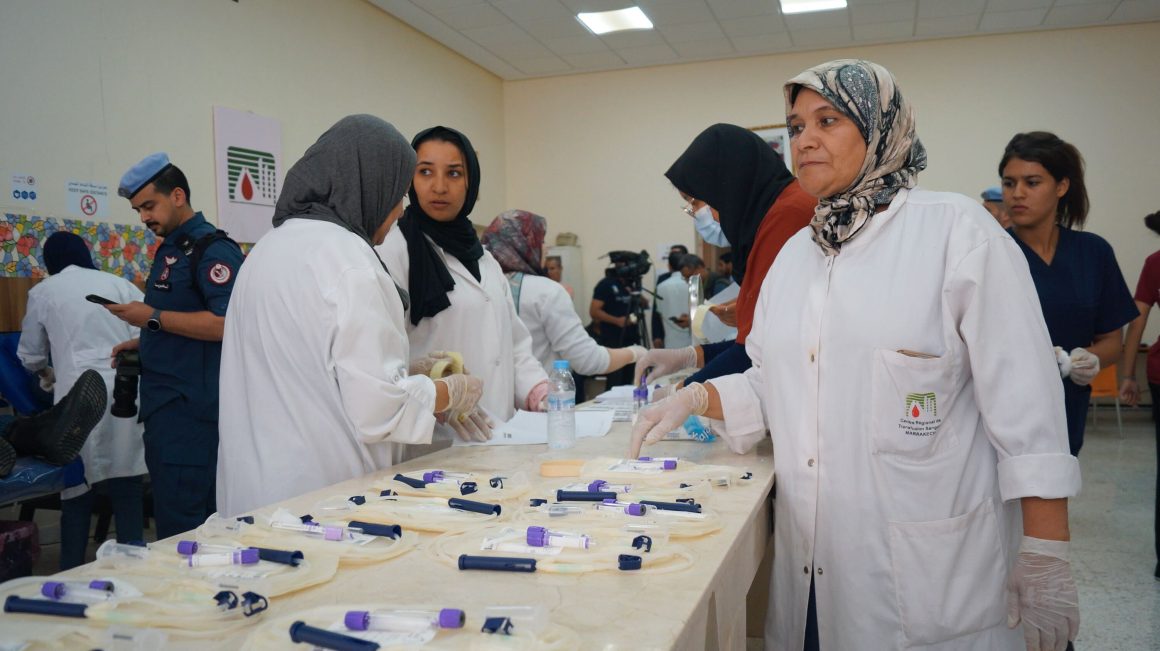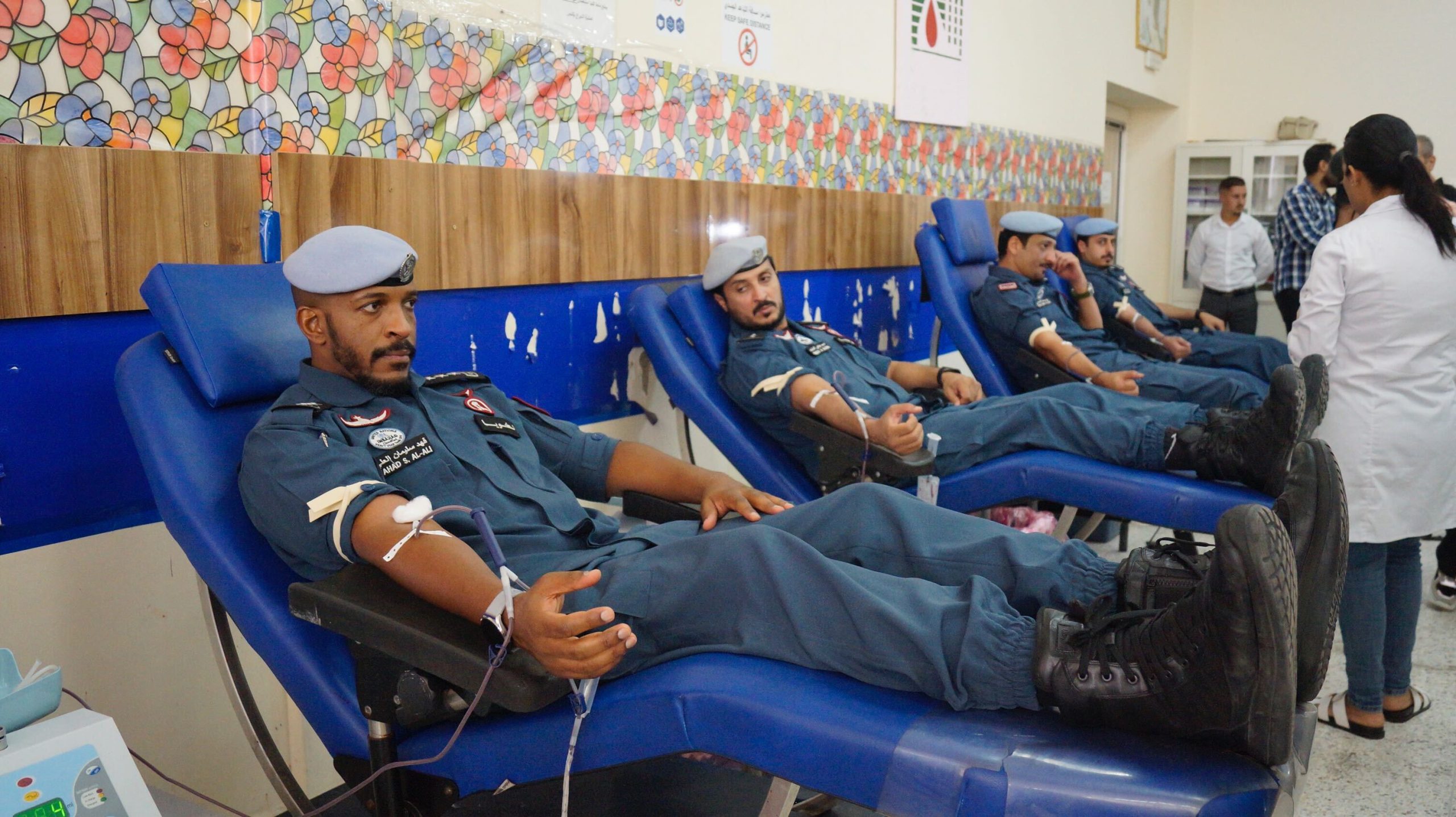Doha News accompanied the Lekhwiya team at the Mohammed VI hospital as they donated blood to earthquake victims.
Morocco has been on its feet for the past three days navigating through a deadly earthquake that no one could have predicted in a hundred years.
The sudden event has pushed Morocco’s 37 million population in an excruciating state of grief with the death toll increasing by the hour amid ongoing search and rescue operations.
Across Marrakesh, the hardest hit city, thousands of injuries have crowded hospitals, with medics working around the clock to attend to every patient.
And with hearts aching for their brothers and sisters, the resilient Moroccan community stood up to the challenges brought forth by such a tragedy, becoming the prevalent force in trying times.
Within hours of the earthquake rocking Morocco on Friday, long cues of blood donors filled up medical clinics and hospitals—scenes that have not changed for the past three days since the disaster occurred.
At the Mohammed VI hospital in Marrakech, there is barely any space to move between the tight hallways amid an influx of blood donors. One would be lucky to secure a seat in the waiting area inside, or outside under the tent set up right in front of the hospital’s entrance.
The blood donation room inside the hospital is even busier, with white coats floating between donors of diverse ethnic backgrounds as stacks of blood bags pile up by the second.
In a show of Arab solidarity, a large number of Qatar’s search and rescue team, the Lekhwiya, showed up at the hospital on Monday. The Qatari personnel were greeted with hopeful smiles while spreading a sense of Arab pride among the donors.
“The donations from the [Qatari] brothers are of great honour to us, Moroccans, Qataris and Arabs. And this is not something that is new to Arab brothers from all Arab backgrounds,” Dr. Sif Essalam, Hematologist Director at the hospital, told Doha News.

Dr. Essalam, medics, and volunteers at the hospital in Marrakesh have been working tirelessly day and night to keep up with the large number of incoming blood donors—the main challenge the hospital initially faced on Saturday.
“We managed to contain the situation within the first couple of hours,” Dr. Essalam said.
For the past three days, the hospital in Marrakesh has received more than 100 donors on a daily basis, securing more than enough blood supplies to help earthquake victims and other patients in need of the life-saving donations.
“The situation is very reassuring with respect to blood supply,” Dr. Essalam said.
An ‘emotional’ time
Residents and citizens from different areas and generations have also been gathering at the hospital in Marrakesh in a show of solidarity with the affected population.
Sitting on one side of the blood donation room with her right arm stretched out, Hiba Karam, a 19-year-old Moroccan, was excited to take part in the community donations.
“Praise be to God, my entire family is safe. Praise be to God. But we are all one family, all Moroccans are a family. This is why we came here to help one another,” Karam said.
The tragic 6.8 magnitude earthquake hit the southwest of Marrakesh on Friday, killing at least 2,862 people while injuring more than 1,000 others, many of which are in a critical condition.
Pierre Jarju, the protocol officer of the Gambia Football Federation, happened to be in the country with his team members just in time to offer support to the earthquake victims.
“I was so emotional when I even came here, I was even crying when I saw people coming from all around, everywhere, just to save lives. It’s really emotional,” Jarju told Doha News right after completing his blood donation at the hospital.
For now, the death toll is only expected to increase in the coming days as search and rescue teams—including ones from Qatar, Spain, the United Kingdom, and the United Arab Emirates—search through the rubble for survivors.







